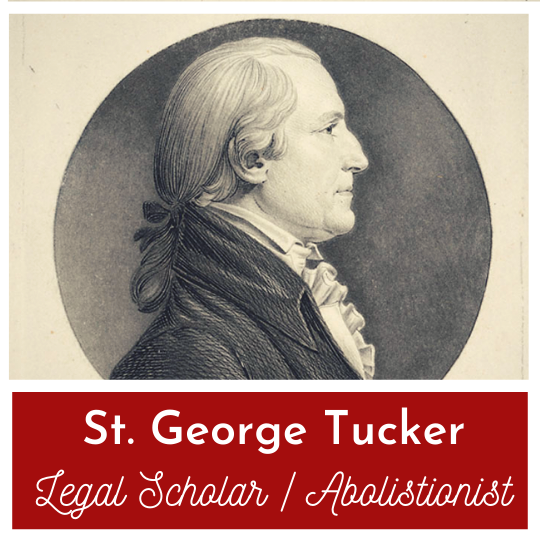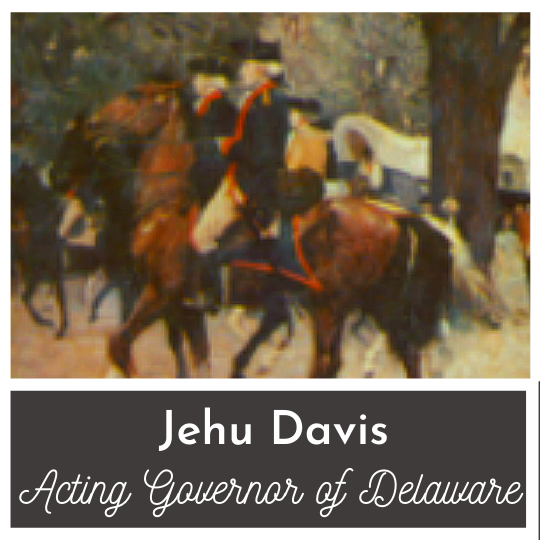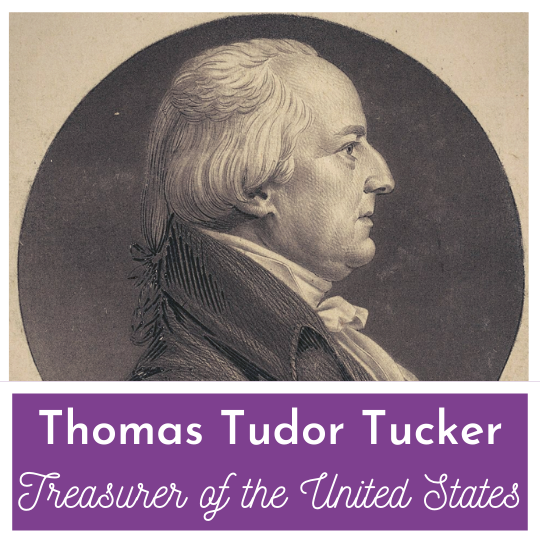Judge and Justice - The Career of St. George Tucker
Today we follow up yesterday’s article about Thomas Tudor Tucker with his younger brother, St. George.
St. George Tucker was one of the preeminent lawyers of the Early Republic as well as one of the first Virginian abolitionists.
Yes, his name was St. George, we are just going to have to move past it.
St. George Tucker
A native of Bermuda, St. George Tucker followed his older brother Thomas to Virginia.
Tucker studied law at the University of William and Mary under the tutelage of George Wythe.
He briefly returned to the Caribbean, where he probably participated in the Gunpowder Plot, before joining the Virginia Militia.
St. George was twice wounded during his service, but fortunately survived and finally becan his career as a lawyer.
Annapolis Convnetion
Tucker took on several notable cases early in his career, bringing him to the attention of Virginia’s leading citizens.
He was chosen alongside two other up and coming Virginians (Edmond Pendleton and James Madsion) to represent the state at the Annapolis Convention...a meeting that led to the Constitutional Convention a year later.
Shortly thereafter, St. George was chosen to sit on the General Court of Virginia.
Leading Law Professor
About the same time he was appointed as a Judge, Tucker was bestowed a Doctorate of Laws and Police.
He then took over for George Wythe as the leading law professor at William and Mary. In this position he educated a long list of future Virginian lawyers.
By 1804, Tucker was chosen to sit on the Virginia Supreme Court. Seven years later he resigned in protest of several procedural changes he disagreed with.
President Madsion would take advantage of his availability by appointing Tucker as a Federal Judge, a position he would keep for the final twelve years of his career.
Tucker’s Blackstone
St. George Tucker is best known for two works he published during his lifetime.
The first was Tucker’s Blackstone, a republication of William Blackstone’s Commentaries on the Laws of England.
While Blackstone’s Commentaries had only been printed a few years before the Revolutionary War, it focused strictly on English laws. Tucker’s Blackstone was annotated and updated to fit into the legal systems of Virginia and the United States.
Tucker’s Blackstone became a necessary text for lawyers of his day (and today), more important than any other save for Nathan Dane’s extraordinary work.
A Dissertation on Slavery
First printed in 1796, Tucker’s A Dissertation on Slavery: With a Proposal for the Gradual Abolition of it, in the State of Virginia, was the first major attempt at abolition by a Southerner.
Not only did St. George criticize the hypocrisy of the American Revolution’s ideals being counter to slavery, he traced its entire history in North America.
Furthermore, he argued against the idea that slaves were not ready for freedom, but rather that white elites were the ones who were not ready.
Additionally, he cobbled together a plan for the gradual emancipation of slaves in Virginia.
Abolitionist Ideas
A Dissertation on Slavery was submitted to the State in hopes that it would be passed into law and set Virginia on the proper course. Predictably, this did not happen.
It should be noted, his plan was all over the place, as it assembled the separate methods accomplished Northern States while making concessions that Tucker himself didn’t like in hopes that it would be accepted.
An example of this is that he wanted to free black people, but then make it difficult for them to live in Virginia in an effort to have them leave. His great hope was for the freed slaves to go to the Louisiana Territory which was doubly problematic as that land was still owned by Spain at the time.
Despite it’s major flaws, Tucker’s Dissertation on Slavery was well ahead of its time and certainly an attempted step in the right direction.
To read Tucker’s Dissertation on Slavery for Free…CLICK HERE.
Here are some other articles regarding abolition during the American Founding:
Preaching Abolition - Lemuel Haynes Breaks Barriers
Abolition in Massachusetts - Theodore Sedgwick Takes the Case
Joseph Whipple’s Contribution to Freedom in Portsmouth
St. George Tucker has several biographies, though most are pretty old.
‘Citizen of No Mean City’ is from the 1930’s and is a bit pricey due to its limited availability, but certainly worth the read.
If you’d like a copy you can get one through the Amazon affiliate link below (you’ll support this site, but don’t worry, Amazon pays me while your price stays the same).
Want to get fun American Revolution articles straight to your inbox every morning?
Subscribe to my email list here.
You can also support this site on Patreon by clicking here.





